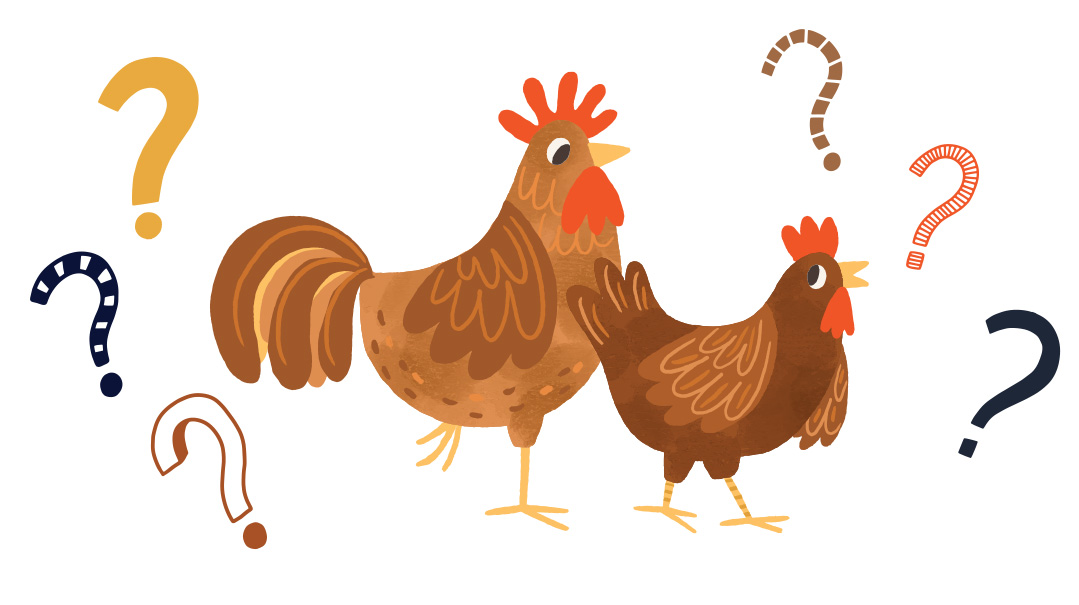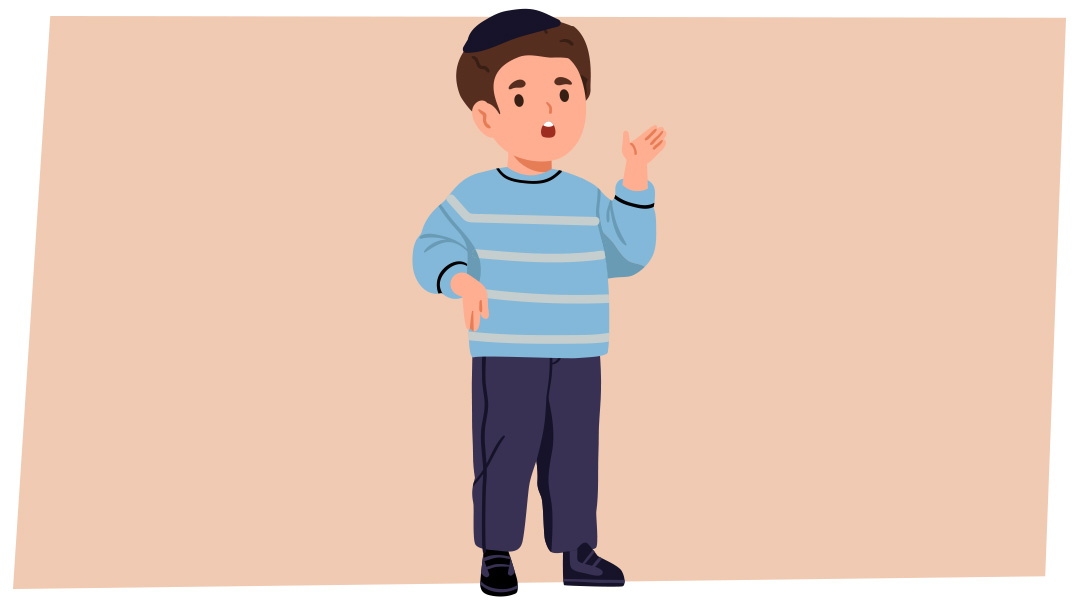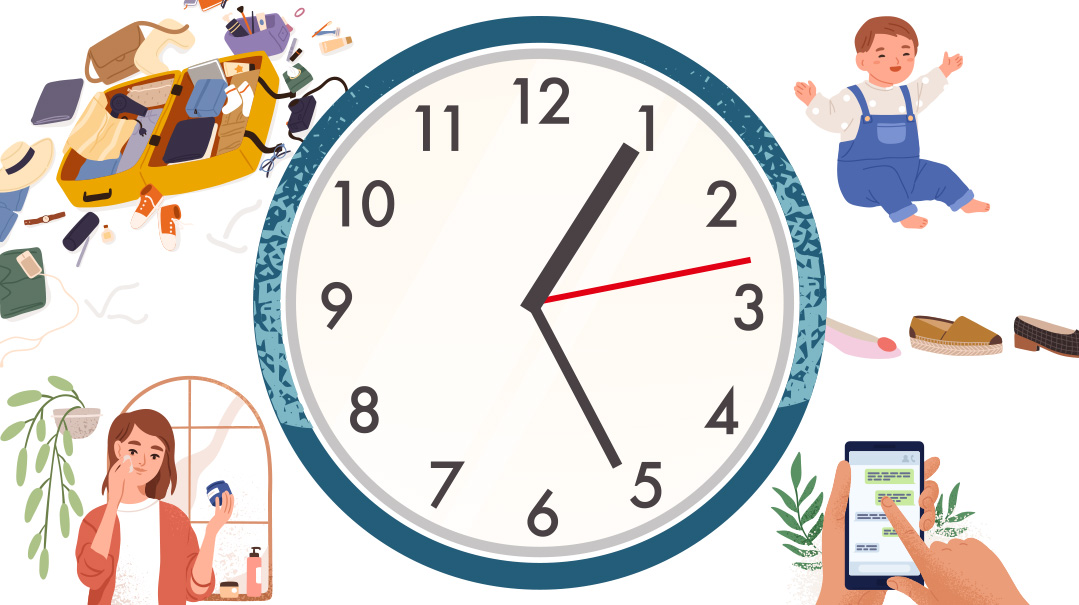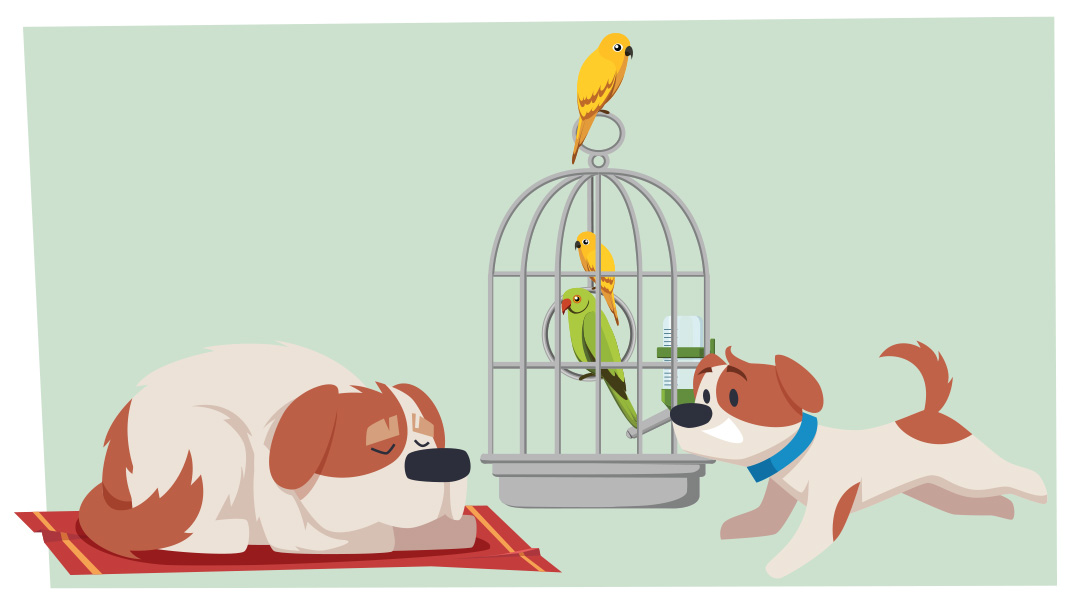It Doesn’t Hurt to Ask (Or Does It?)
| June 6, 2023Of course, I’m delighted that my children believe that I am wise and all-knowing

“Ask, ask! It is the only way you will ever learn!”
This adage may be true, but as a mother, I sometimes want to tweak it a bit so that it sounds like this: “Ask, ask your father! It is the only way you will ever learn…. Plus, I’ve already been answering your questions for 45 minutes, and I’m sure Tatty wants a turn because he’s feeling left out.”
Of course, I’m delighted that my children believe that I am wise and all-knowing.
I’m flattered, really.
I certainly don’t mind the easier questions such as: “Is chicken milchig, fleishig, or pareve?” which can be answered almost without thinking. What’s more disconcerting is when they follow up with: “You know what’s weird? Why is chicken the food called by the same word as chicken the cute animal?”
That’s usually my cue to offer dessert as a quick distraction.
My husband and I think it’s important to give both parents equal opportunity to be involved in the Q & A process, so we take turns being The One With The Answers. (Also, we might otherwise lose our minds.)
To be fair, I ask my kids quite a few questions myself. Not that I get any helpful answers, but I continue to ask.
I once walked into my house and asked my children why every single blanket and pillow we own was piled into a huge mountain in the middle of the kitchen. They couldn’t even hear the question over the sound of the music blaring from somewhere in the corner as my oldest gave detailed instructions to his younger brothers.
Occasionally I’ll ask my children a simple question, but the answer I receive isn’t as simple. Like the time I walked into the dining room and saw crystal pieces from the light fixture on the floor.
“Hey, guys?” I tried. “What happened to the light?”
“Nothing happened,” my six-year-old explained. “It just broke all by itself!”
“All right, how did it break by itself?”
“Well,” he continued, “all I did was juggle these stuffed animals under the light, and then the animals went up too high and crashed into the light and some of the pieces fell down and that’s how it broke all by itself.”
Didn’t see that one coming.
Then there was the time my eight-year-old missed his bus stop one afternoon.
No, he didn’t miss his bus. He missed getting off the bus on the way home. When he finally walked into the house, I breathed a sigh of relief and asked, “What happened? Why didn’t you get off the bus at your stop?”
“I had to get all of my things together from the back of the bus, and it took so long for me to grab my jacket and my knapsack.” he said matter-of-factly.
“Why weren’t you wearing your jacket and knapsack?” I pressed.
“I didn’t have time to put them on. I’m always the last one to leave.”
“Why are you always the last one to leave class?” I asked, wondering how an innocent line of questioning had snowballed like this.
“Because first I have to put my shoes on, and then I have to wash my hands,” he said, explaining the obvious.
“What are you talking about? You have to put your shoes on? Why in the world are your shoes off in class?”
Let’s just say that the rest of the conversation was not any more edifying than the beginning, which is to say I was more confused at the end than I was before we had that little chat.
Sometimes when bedtime is done and silence descends over the couch I’ve fallen onto, I find myself grappling with a number of pressing philosophical questions I wish had answers to.
For instance, why are there a number of tasks and chores that my kids are keen to get involved in, and other jobs that somehow make them vanish before I can even ask for what I need.
As I ponder this mystery, I make a mental list.
Things my children refuse to help with, insisting they are not the right people for the job:
- picking up millions of tiny Playmobil or Lego pieces
- putting caps and covers back on markers, gel pens, or glue
- spilling out their own used negel vasser
- collecting the crayons from on the table and under the table after they have spent the afternoon using them
- putting their own clothing in the hamper, and
- throwing out their empty snack bags or sticky Popsicle sticks when they are finished eating.
I finish my list with a sigh and mentally draw up another one:
Things my children love helping with, claiming they were born for this, insisting they are the only ones who can do this job correctly:
- pushing potatoes into the food processor
- baking anything, but particularly adding ingredients to a mixing bowl
- adjusting the speed on the mixing bowl
- spraying Windex — on everything
- sprinkling sugar on their French toast (apparently I’ve been doing it wrong), and
- unpacking groceries immediately upon their arrival, leaving all unpacked items in a pile on the floor as they search for their favorite snack or weekly magazine.
On a similar note, why do my kids insist on accompanying me on my errands only if they include the grocery store, toiveling kitchenware, and any appointment scheduled for a sibling — but disappear like smoke in the wind when it’s time to go to the barber, the shoe store, or their own appointments?
Who can I ask these questions of?
Who might have the answers?
Hang on a minute, let me call my mother.
She’s wise, all-knowing, and has the answers to everything.
(Originally featured in Family First, Issue 846)
Oops! We could not locate your form.







